bbbbbbbbbbbb
 |
 |
 |
 |
 |
 |
 |
 |
 |
 |
 |
 |
 |
 |
 |
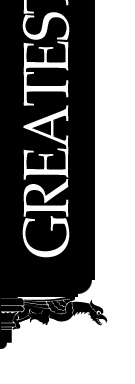 |
COURSE DESCRIPTION

Gateway to the Study of Politics and Christian Social Ethics: This is a Self Taught full-semester Video Course including Methodology, Classical Psychology, Natural Law Ethics, Natural Law Politics and Jewish Law for those who want their lessons by video, power points, and office hiours by appointment($17.99).
Price includes all Kolbe's Greatest Electronic Books on Syllabus plus Dr. Marzak's "Trinitarian Humanism" and "Integral Methodology" and all Video Lectures
COURSE DESCRIPTION
Politics and Christian Civilization provides a philosophical, theological andf empirical account of politics and the social question in the thought of Plato and Aristotle,which is buttressed by sacred scripture.
The Course is thus divided into four parts:
- Methodology: An examination and integration of philosophical, theological and empircal methods including comparative use and limits of all three and an examination of why and how they can, and should be, combined into a robust integral methodology.
- Psychology: What is a human being. The study of human nature by use of reason (philosophy), revelation and empirical observation. The study of psychology (human nature) is prerequsite to both ethics (study of the human indivdual good) and politcs (study of the broader common good) . Before either the individual human good or the common good for human beings living in society can be determined, we must first know what a human being is.
- Ethics: Study of human powers and potentials and how they can be actulazed. Includes a study of habits and the various theological, moral and intellectual virtues iherent in human nature and how to develop them.
- Politics; Study of the Common good including analysis of government power and authority, law, (divine law, natural law, civil law), the best type of government; is it democracy, aristocracy, monarchy or something else?
The interesting congruence between Greek philosophy and Judeo-Christian faith (faith and reason) is examined throughout, especially by recourse to the revelation given to Moses with special emphasis on the books of Deuteronomy and Leviticus compared to the thinking of the pagan philosophers Plato and Aristotle.
Students will explore human nature, understand its relationship to ethics, and explore the relationship between politics and religion. They will also learn to distinguish disobedience from rebellion, grasp the meaning and importance of sovereignty, and understand why there are three types of justice: commutative justice, distributive justice, and social justice.
All Reading Materials are included in the course
Contact: Students may contact the professor at dmarzak@kolbefoundation.org
|
| |
|
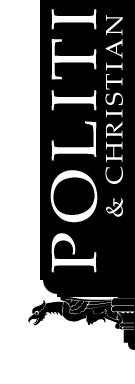 |
|


|
 |
 |
 |
 |
 |
 |
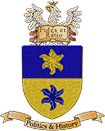 |
TOPIC 1: INTRODUCTION,
What is Political Science: Grasping the Big Picture: Politics, Ethics, Psychology, and the Liberal Arts
Topic 1: Lecture I. Overview of Political Science
OVERVIEW POLITICS & LAW SAMPLE VIDEO
Topic 1: Lecture II. How do Human Beings Know: Religion, Science, and Philosophy?
- Lecture IItVideo
- Lecture II Online Test
Topic 1: Lecture III. The Scientific Method
- Lecture III Video
- Lecture III Online Test
Topic 1: Lecture IV. Discussion
- Lecture IV Video
- Lecture IV Online Test
|
|
 |
Online Readings for Topic 1
Marzak:
Integral Methodology - Philosophy, Science, and Religion
Intergral Methodology E-Book provided with course.
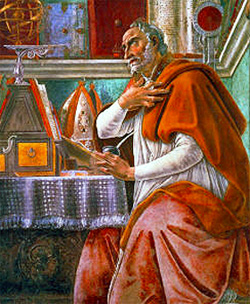

"Men go abroad to admire the heights and mountains, the mighty billows of the sea, the long course of rivers, the vast compass of the ocean, and the circular motion of the stars, and yet pass themselves by."
St. Augustine of Hippo |
 |
 |
TOPIC 2:
WHAT IS MAN?: THE PERENNIAL GREEK PERSPECTIVE
Topic 2: Lecture I.
Topic 2: Lecture II. Aristotle on the Soul
Topic 2: Lecture III. Aristotle versus Darwin
Topic 2: Lecture IV. Human Thinking and The Power of Language
Topic 2: Discussion with Anne Lasiter and James O'Brian
|
|
 |
Readings for Topic 2
Aristotle:
The Soul
Darwin:
The Origin of Species
Chapter 3: The Struggle for Existence
Chapter 4: Natural Selection
The Descent of Man
Chapter 3: Comparison of Mental Powers
Chapter 4: Comparison of Mental Powers Cont.
G. K. Chesterton
The Everlasting Man
Chapters: 1-3
Maritain:
What is Man? (HTML) (E-Book)
Marzak
Trinitarian Humanism
|
 |
 |
TOPIC 3:
ETHICS: STUDY OF THE GOOD LIFE FOR MAN
Topic 3: Lecture I. Introduction to Ethics
Topic 3: Lecture II. Natural Virtues
Topic 3: Lecture III: Intellectual and Moral Virtue
Topic 3: Discussion Natural Virtues with Anne Lassiter
|
|
 |
Readings for Topic 3
Aristotle:
Nichomachean Ethics (HTML)(E-Book)
Confucius:
The Great Learning (HTML)(E-Book)
Doctrine of the Mean
 |
 |
 |
TOPIC 4:
POLITICS: THE BEST STRUCTURE OF GOVERNMENT
Topic 4: Lecture I. Introduction to Politics
Topic 4: Lecture II. Liberty and Rights
Topic 4: Lecture III. What is the Best Form of Government?
Topic 4: Lecture IV. Discussion of Politics with Anne Lassiter
|
|
 |
Readings for Topic 4
Aristotle:
The Politics (HTML)(E-Book)
Plato:
Statesman (HTML)(E-Book)
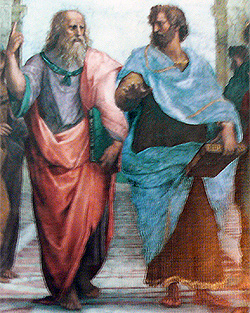
|
 |
 |
TOPIC 5:
POLITICS AND SOCIETY IN ANCIENT ISRAEL
Politics in the Garden of Eden: Creation, Angelic Rebellion and Human Disobediene
Classes I and II Mary and Eve
Class III: Jewish History After Fall from Noah to Abraham
Class IV. Ten Commandents, The Old Law Charity and Justice the Perfect Good and the Imperfect Good and the Ceremonial Precepts:
- Video
- Powerpoint Presentation
Class V. Ceremonial Precepts: Sacraments Sacred Things Sacrafices and Observances Levitical Priesthood and Jewish Liturgy
- Video
- Power Point Presentation
Class VI. Judicial Precepts: What are Moral and Judicial Precepts: Jewish Idea of the Best Government
- Power Point Presentation
- Video
Class VII. Judicial Precepts Regulating Relationships amoung Men, Private Property Property Distribution, and Theft
Class VIII: Judicial Precepts Punishment, Degrees of Culpability, Ignorance of Law, Malice, Foreigners, Family Relationships Husband and Wife
Class IX: Family Continued: Slaves and Treatment of Children
|
|
 |
Readings for Topic 5
Josephus:
Wars of the Jewish People (HTML)(E-Book)
(Books 5-7 )
Antiquities of the Jewish People
(Books 18-20)
Holy Bible:
Leviticus and Deuteronomy
St. Augustine:
The City of God (HTML)(E-Book)
(Books 14, 15, 16, 17)
Eusebius:
Ecclesiastical History (HTML)(E-Book)
(Book 1)
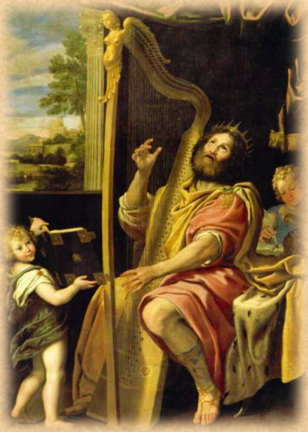

"Blessed is the man who hath not walked in the counsel of the ungodly, nor stood in the way of sinners, nor sat in the chair of pestilence.
But his will is in the law of the Lord, and on his law he shall meditate day and night.
And he shall be like a tree which is planted near the running waters, which shall bring forth its fruit, in due season. And his leaf shall not fall off: and all whosoever he shall do shall prosper "(Psalm 1)
King David
 |
 |
| |
|
|
|
|
| |
|
|
|
|
|
 |
 |
| |
 |
 |
 |
 |
 |
 |
 |
 |
 |
 |
|